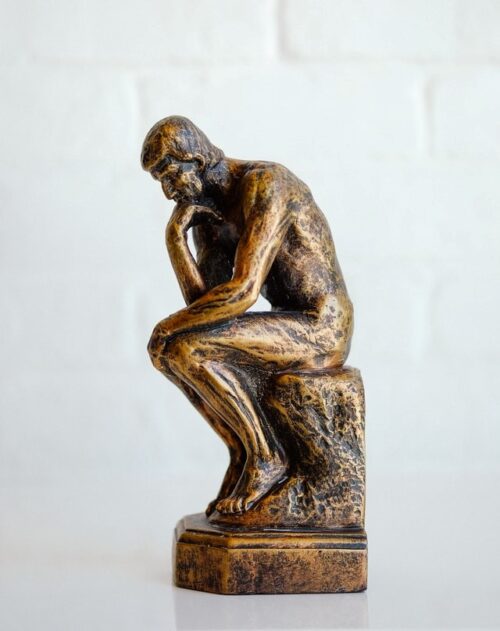
Socrates, Plato and the Post-Truth Society
In my last article I tackled the concept of “What is Truth”. I used Lao-Tzu and the ancient Chinese book of wisdom, The Tao-Te-Ching (The Way and Its Power) to show that truth was not subjective, but objective.
For more information, I refer you to that article.
What is the Post-Truth Society?
But now I would like to probe a little deeper into our Post-Truth society where anything anyone believes is true, is true, simply because they believe it to be.
It is a world where you can have alternative facts to the established facts of science and reason. This rejection of Truth has ripped any sense of a shared reality right out from under our feet, leaving us dangling in the air with no firm ground to stand on.
You have your beliefs and I have mine, and that’s that. There is no lived world we share anymore. Instead, we each live in our own subjective realities.
Without a common world for reference how can a society function? What’s to connect people and give them a shared reality?
Ancient Greece Also Had This Problem
This was a problem that the classical Greek civilization of Athens faced some 2,300 to 2,400 years ago.
The Sophos, the Pre-Socratic Greek philosophers (before Socrates) wanted to discover the basic substance of reality. At that time their choices were narrow. The only elements they had to work with were Earth, Air, Water and Fire.
One philosopher concluded it was water, another said it was air, and yet another said it was Fire.
One philosopher said the nature of the universe was change, and another said it was permanence, believing that change was an illusion. They couldn’t agree on what the basic element of reality was.
The Sophists Believe There is No Truth
This led another group of philosophers, the Sophists, to conclude that therefore, there was no Truth. Truth was in the eye of the beholder. Truth was whatever you wanted it to be.
For the Sophists, Truth ended up being whatever helped a person attain power and get ahead in society. Truth became subservient to power. Truth was what worked.
The Sophists were materialists who didn’t believe in a transcendent realm beyond the physical.
They believed everybody was in it for themselves. Each person was an isolated self at war with all the other isolated selves for power, prestige and position. It was English philosopher Thomas Hobbes’ “War of All Against All.”
This is very similar to our world today. The Pre-Socratic philosophers represent our modern world of reason which also failed to give us objective truth.
As that worldview collapsed, the Post-Truth perspective, that all truth is relative to individual or cultural whims, took hold.
Socrates and Plato Counter the Sophists
But it is there the similarities end. The ancient Greeks had the advantage of having Socrates and Plato, men of wisdom, to oppose the valueless and truthless world of the Sophists.
Sadly, we have no such people today, so we must tap into the wisdom of Socrates and Plato to gain insights into our predicament.
Both Socrates and Plato disagreed with the materialism and moral relativism of the Sophists. They thought such a view would lead to the downfall of society, as we are witnessing today.
Techne and Arete
The biggest criticism Socrates and Plato made of the Sophists was they lacked techne, which means “technique” or “know-how”. They accused the Sophists of having “bad techne.”
What does this mean?
This ties into the Greek concept of Arete, which means “virtue” and virtue for them meant, “excellence of function.”
Things are virtuous when they are functioning well, and things function well when they are fulfilling their nature, their inner purpose.
Therein lies the fundamental difference between the Sophists, and Socrates and Plato. Socrates and Plato believed there was a transcendent non-physical reality beyond the physical reality. It is where our souls exist.
Our purpose in life is to develop and cultivate our souls to be become the best people we can be. Socrates was known as the “physical of the soul.’ He thought maintaining a healthy and virtuous soul was the most important thing anyone could do in life. With such a soul, one need fear nothing, not even death.
The Sophists, on the other hand, being materialists, didn’t believe in a transcendent reality or an eternal soul.
To them, we are just this bag of bones trying to get ahead in this meaningless world.
It was this view of the Sophists that led Socrates and Plato to believe the Sophists had bad techne. What would be a Sophist’s motivation to push themselves to excel? As one Sophist said, “why do the right thing if there is no advantage in it?”
The Sophist Doctor vs. The Socrates Doctor
Let me give you an example to make this clearer.
Suppose a Sophist follower wanted to become a doctor. What would be their primary motivation? Would it be to help and heal people? Probably not.
Almost certainly, it would be because of the money, prestige and power they would accrue from their profession.
The Sophist doctor would likely be more interested in rushing his patients through their examinations for potential lunch or golf dates. Remember, they mostly became doctors for outer enticements rather than the desire to be the best doctor they can be.
Also, they would be less likely to push their studies in medicine beyond a necessary competence to prevent lawsuits or other problems.
In contrast, what would be the motivation for someone who held the views of Socrates and Plato?
While they may not reject the money and prestige, that wouldn’t be their primary motivation. They would want to be the best doctor they could be to fulfill their nature. They would accomplish this by helping patients get better. They would, in all likelihood, spend more time examining and diagnosing their patients to get at the core problem causing their malady.
So if you had a sick child, which doctor would you take your child to see?
The one who might rush through the exam to get to their golf date, or someone who put the care and cure of your child, not only at the core of their practice, but at the core of who they are as individuals?
Clearly you would choose the latter and you would do it, as Socrates and Plato said, because the Sophist doctor would have bad techne. They wouldn’t see the need to put in that extra effort to help cure your child.
Apply This to All Professions
Now suppose these attitudes weren’t just applied to doctors, but to every profession in society?
We could see that following the Sophist’s view, very few people would be doing their jobs for the sake of their job, but for ulterior and materialistic motives. As a result, society would suffer from the incompetence that would prevail.
This is what happens in a Post-Truth society. Everyone is in it for the money, and very few for the quality of the work.
Apply it to Today
We saw the truth of this when Trump became president. He made so many appointments of unqualified people to positions of power; their only motivation being the desire to feather their own nests.
We saw it in the feeble-minded way Trump and his administration handled the coronavirus pandemic. How many hundreds of thousands of needless deaths occurred because of their incompetence?
We also witnessed it in his three Supreme Court nominees who made it onto the Court. Since then the reputation of the court has drastically fallen. These justices are more motivated by politics and power than by an evenhanded distribution of justice.
So as Socrates and Plato pointed out, without an underlying moral compass embedded in a transcendent reality where thoughtful people can retreat for wisdom and perspective, we will continue to head into some very dangerous waters, indeed.
For more information on attaining Truth. Click this link: The Magical Universe.




